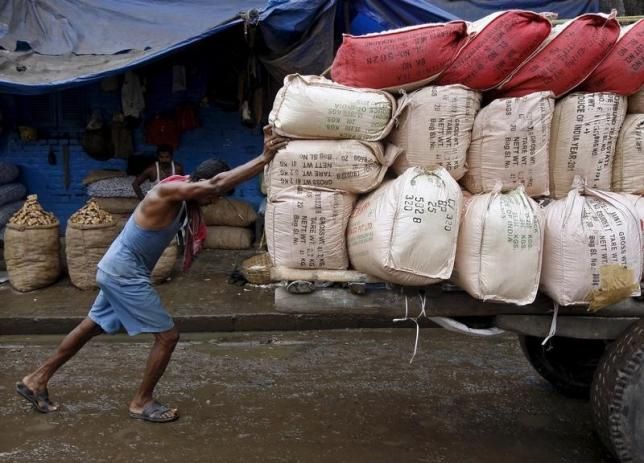The draft, which has been put up by someone in public domain is not the official one.
 The draft model law on Goods and Services Tax will be finalised in a month's time, a top finance ministry official on Tuesday said.
The draft model law on Goods and Services Tax will be finalised in a month's time, a top finance ministry official on Tuesday said.
"We are also working on draft GST model law.
"The draft, which has been put up by someone in public domain is not the official one.
"In fact we are still working on it.
"The draft will take one more month and once that is done, we will be putting it in public domain and the similar process of consultation with trade bodies will be done", Special Secretary in the Ministry of Finance Rashmi Verma said at an event organised by industry body Assocham.
Verma said whatever is in circulation is just the base paper prepared for kicking off the discussion on the draft law and there might be number of changes in it further.
Once the Constitution amendment bill to roll out GST is passed by Parliament, the centre and states will have to adopt their own law to give effect to the new indirect tax regime.
The Special Secretary said that the government is open to dropping proposed one per cent additional tax on inter-state movement of goods, if industry demands.
"If after consultation with various industry and political parties, it is felt that we should drop one per cent additional tax then we are open to it", Verma said.
"And definitely, I also agree, with one per cent additional tax going (away), GST structure will improve considerably because even if it is going to be there for only two years, there will be some amount of cascading effect", she added.
Verma, however pointed out that the government has already made changes in GST Bill, which is currently in Rajya Sabha, to minimise cascading effects of one per cent additional tax on inter-state movement of goods.
"There are a number of opinions about proposed one per cent additional tax.
“The select committee, which looked into it, also gave its recommendation, which we have accepted and with that, the cascading effect will be minimised because the one per cent additional tax will now be only on sale, and not on supply of goods."
"So, fear that every time goods move from one state to other, there will be one per cent additional tax need not be there because that change has already been made in Bill", she said.
On dispute resolution mechanism, Verma said GST council will not decide on the dispute but will only look at the modalities.
"So what would be an independent mechanism for dispute resolution will be recommended by the GST council.
“It can be in the form of tribunal, authority or others. The council itself would not be resolving the issues", she said.
Image: A labourer at work. Photograph: Reuters









